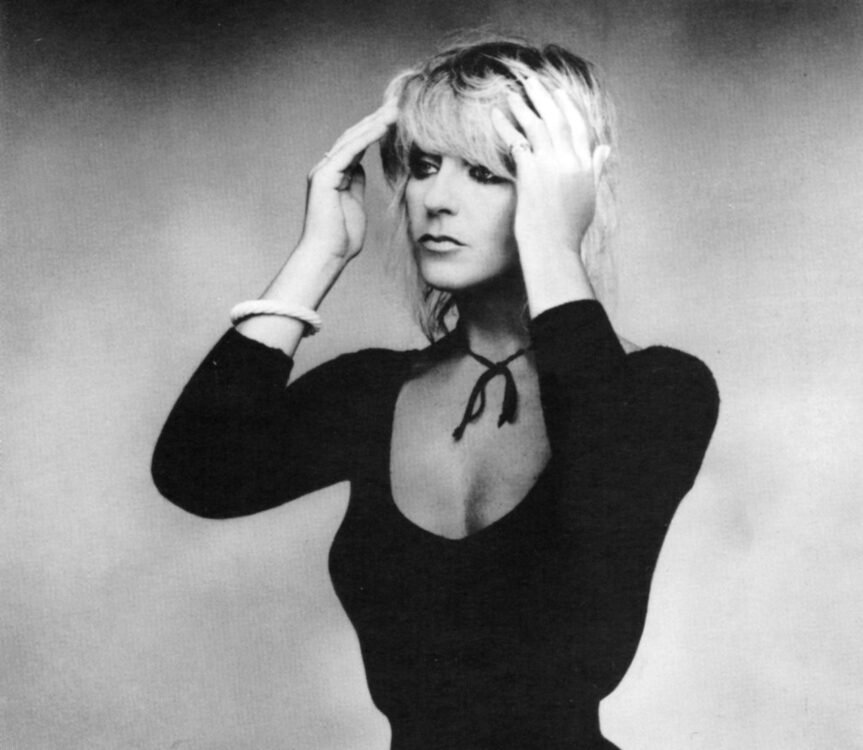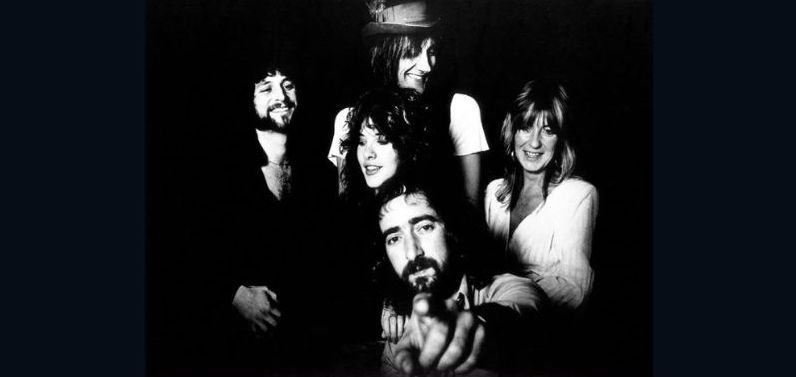Have you ever heard a song that makes you want to dance like a pony, travel around the world, or be with your loved one everywhere? If so, chances are you have listened to Fleetwood Mac’s Everywhere, a pop masterpiece that has transcended time and space.
But how did this song, which was released in the late 1980s, become a phenomenon in the 21st century? Let’s find out!
The Meaning and Message of Everywhere

Everywhere was written and sung by Christine McVie, the keyboardist and vocalist of Fleetwood Mac. She is also known for writing other hits such as “Don’t Stop”, “Little Lies”, and “You Make Loving Fun”. She said that she wrote it about her then-husband, Eddy Quintela, whom she married in 1986. She said, “It’s just about wanting to be with someone, wherever they are. It’s as simple as that.“
The song expresses this desire with catchy and romantic lyrics, such as “Can you hear me calling out your name? / You know that I’m falling and I don’t know what to say / I’ll speak a little louder, I’ll even shout / You know that I’m proud and I can’t get the words out“. The chorus repeats the phrase “I wanna be with you everywhere“, which is both the title and the main message of the song.
The song resonates with different generations and cultures, as well as its various interpretations and meanings. Some people see it as a love song, a travel song, a nostalgia song, or even a quarantine song. No matter how you view it, the song captures a universal feeling of longing and belonging that everyone can relate to.
The Revival of Everywhere in 2013
Everywhere was released in November 1987 in the United States and March 1988 in the United Kingdom as the fourth and fifth single from Fleetwood Mac’s 14th studio album, Tango in the Night. The album was recorded at Lindsey Buckingham’s home studio in Los Angeles. The song was a commercial success, reaching number 14 on the US Billboard Hot 100 and number one on the Adult Contemporary chart. In the UK, it peaked at number four and was certified quadruple platinum for sales and streams of over 2.4 million units. It also topped the charts in Belgium and Canada and reached the top 10 in several other countries.
However, the song did not fade away after its initial popularity. In fact, it gained a new life in 2013, when it was featured in an advertisement for UK mobile phone provider Three, which showed a pony dancing to the song. The ad was created by Wieden+Kennedy London and directed by Dougal Wilson. It was part of a campaign called “The Pony #DancePonyDance”, which encouraged people to share their own versions of the pony dance online.
The ad went viral and sparked a renewed interest in the song, which re-entered the UK Singles Chart at number 15. The ad also inspired many parodies and remixes online, such as The Shetland Pony version, The Moonwalking Shetland Pony version, The Goat version, The Star Wars version, etc. The ad was praised for its humour, creativity, and effectiveness and won several awards, such as the Cannes Lions Grand Prix for Film Craft and the British Arrows Gold for Best TV Commercial of over 90 seconds.
The Covers and Remixes of Everywhere by Other Artists
Many artists have covered or sampled Everywhere over the years, such as Vampire Weekend, CHVRCHES, The Corrs, Master Blaster, Billy Bragg, Patrick Stump, Ellie Goulding, The Lumineers, and Taylor Swift. Some of these covers have been performed live or released as singles or albums.
Some of these covers and remixes are faithful to the original song, while others are more creative and experimental. For example, Vampire Weekend’s cover is acoustic and indie-pop, CHVRCHES’ cover is synth-pop and electro-pop; The Corrs’ cover is folk-pop and Celtic-pop; Master Blaster’s cover is eurodance and techno-pop, Billy Bragg’s cover is folk-rock and political-rock; Patrick Stump’s cover is pop-rock and soul-pop; Ellie Goulding’s cover is indie-pop and dream-pop; The Lumineers’ cover is folk-rock and Americana-pop; and Taylor Swift’s cover is country-pop and pop-rock.
These covers and remixes pay tribute to or transform the original song, as well as reflect and influence the trends and tastes of different eras and audiences. They also show how versatile and adaptable the song is, as it can fit into various genres and styles.
The Influence and Legacy of Everywhere
Everywhere has evolved and adapted to different contexts and platforms over time, such as radio, TV, film, internet, social media, etc. It has been featured in several movies and TV shows, such as Happy Feet, The Office, Glee, American Horror Story, The Simpsons, etc. It has also been used in various memes, videos, games, podcasts, etc.
The song has received or contributed to several achievements and accolades, such as awards, certifications, rankings, etc. For example, it was ranked number 65 on Rolling Stone’s list of The 100 Greatest Songs of the Century in 2018. It was also included in Pitchfork’s list of The 200 Best Songs of the 1980s in 2015. It was also nominated for Best Group Video at the 1988 MTV Video Music Awards.
The song has become a timeless pop classic that transcends boundaries and generations. It has influenced and inspired many artists and fans around the world. It has also become a symbol of joy, love, and freedom. As McVie said, “It’s a happy song. It makes people happy. And it makes me happy.“
Conclusion
Fleetwood Mac’s Everywhere is a song that was released in the late 1980s but became a phenomenon in the 21st century. It is a song that expresses the desire to be with one’s partner everywhere, no matter where they are or what they do, resonating with different generations and cultures as well as its various interpretations and meanings, becoming a timeless pop classic that transcends boundaries and generations.
It is a song that makes us want to be with it everywhere.


